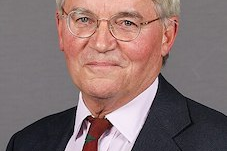Moto Proprio: Bishops of England and Wales welcome Pope's call for unity
The Bishops of England and Wales welcomed Saturday's Apostolic letter Motu Proprio data from Pope Benedict XVI in which he focused on the importance of unity within the Church in celebrating the Eucharist. The Apostolic Letter set out the Norms for celebrating the Eucharist, clarifying provisions for celebrating the Mass according to the Missal published by Pope John XXIII in 1962. The Rite, commonly referred to as the Tridentine Rite, can be used from 14 September 2007 as an extraordinary form of Eucharistic celebration. The Missal published by Pope Paul VI in 1970 remains the normal form. Pope Benedict XVI described this approach as "a twofold use of one and the same rite". The Apostolic Letter is accompanied by a letter to the Bishops in which Pope Benedict XVI states that these changes should not detract from the reform of the liturgy begun at the Second Vatican Council. However, it is important to recognise that requests come not only from people who have grown up in the older tradition of Eucharistic celebration but also that young people have discovered it and "found in it a form, particularly suited to them, of encounter with the mystery of the Most Holy Eucharist". Reflecting on unity as the focus for liturgical celebration the Pope quotes 2 Corinthians 6, 11-13: "Let us generously open our hearts and make room for everything that the faith itself allows". The Pope's intention is to free Bishops from "constantly having to evaluate anew how they are to respond to different situations". He states that the Bishops' own authority and responsibility, both for the liturgy and for the pastoral care of the faithful is fully maintained. Any priest may celebrate Mass, without the presence of others, either according to the John XXIII Missal of 1962 or the Paul VI Missal of 1970 on any day except the Sacred Triduum. No permission is needed. Those lay people who spontaneously request are allowed to be present at these private celebrations. Priests are not to exclude celebration according to the newer Missal and Pope Benedict XVI restated the principle that each particular Church be in accord with the universal Church. In parishes where there exists a group of faithful who prefer the previous liturgical tradition, the parish priest is to accede to their requests for the celebration of the Mass according to the 1962 Missal. Where a parish priest cannot satisfy a request from a group of lay faithful for whatever reason, the matter is referred to the Diocesan Bishop. Should he not be able to make provision for the celebration, the request is to be referred to the Pontifical Commission Ecclesia Dei. Pope Benedict XVI states that fears of division within parish communities are unfounded as the new Missal will remain the ordinary form of the Roman Rite, "not only on account of the juridical norms but also because of the actual situation of the communities of the faithful". Diocesan Bishops may, if appropriate, establish personal parishes for celebrations according to the 1962 Missal. Pope Benedict has invited the Bishops to send to the Holy See an account of the working of the new Norms after three years. Cardinal Cormac Murphy-O'Connor said: "On behalf of the Bishops of England and Wales I welcome the Holy Father's call for unity within the Church and especially towards those who are very attached to celebrating the Mass according to the Missal of 1962. "We are confident that the provisions already made throughout England and Wales under the indult granted back in 1971 go a significant way towards meeting the requirements of the new Norms. We foresee little difficulty in receiving and carrying out the Pope's teaching about the two forms of the celebration of the Eucharist. There will of course be some priests who may not know immediately how best to respond to genuine requests for the extraordinary rite. The Norms are perfectly clear that the responsibility lies with the Bishop and where appropriate for him to refer to the Holy See for assistance and advice. "In Westminster, I have readily given permission for the celebration of Mass according to the John XXIII Missal in some churches in our Diocese. So I was glad to be among those consulted by the Holy Father before he issued this document and to share with fellow Bishops from around the world our experiences in England and Wales in this matter. The situation is very different in almost every country, and we were united with the Holy Father in his desire for reconciliation and for unity in prayer and belief. "I am confident that the Bishops of England and Wales are well placed to implement this timely Letter and the Norms which clarify the universal discipline of the Church." Source: Archbishops House


















